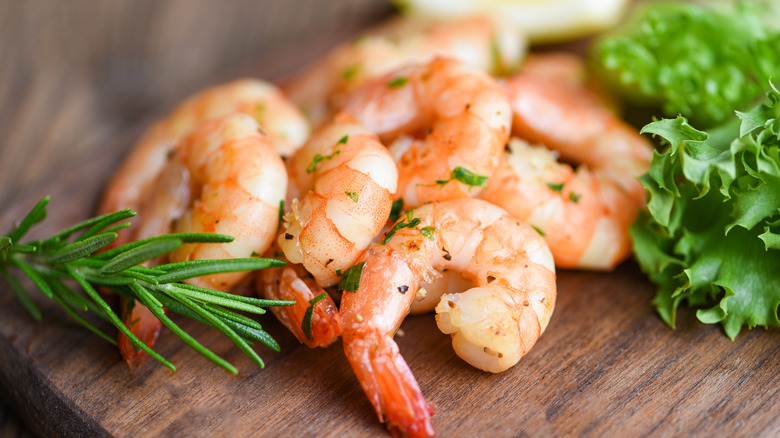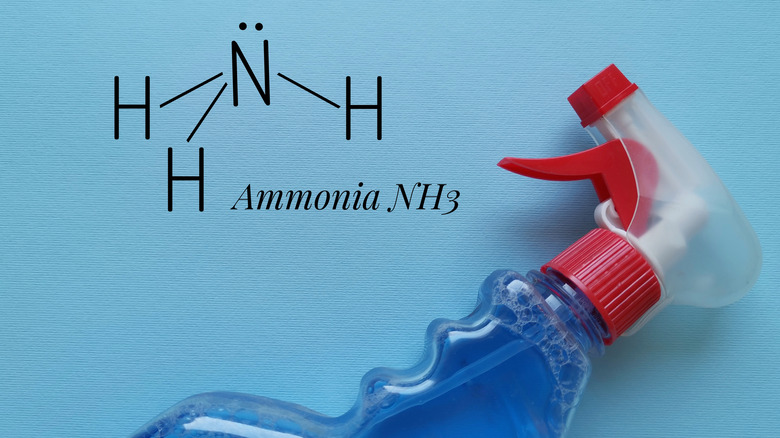This Smell Is A Danger Sign For Shrimp
There's a lot you can do with shrimp. As Bubba from "Forrest Gump" said, "... shrimp is the fruit of the sea. You can barbecue it, boil it, broil it, bake it, saute it. There's uh, shrimp-kabobs, shrimp creole, shrimp gumbo. Pan fried, deep fried, stir-fried. There's pineapple shrimp, lemon shrimp, coconut shrimp, pepper shrimp, shrimp soup ..." and the list goes on. In fact, per the Mordor Intelligence, the demand for this seafood continues to increase, in part because of its incredible nutritional value. The site notes that shrimp is low in calories but high in essential vitamins and minerals, and that doesn't even take into consideration some of the health benefits, which range from prevention of some maladies and the reduction of others, you can reap by adding shrimp to your diet.
While a good many people like shrimp quite a bit, buying fresh shrimp can be a little intimidating. How do you know if it is truly fresh? After all, it all smells, well, a little fishy. But All Recipes shares that there is a danger sign that shrimp has reached its spoilage point, and it is all begins with your nose and a familiar smell. Hard to believe it is that simple, but it is. What's the scent you are looking for?
It will reek of ammonia
If your shrimp has gone bad, it will reek of ammonia. But here's the real kicker: You won't know until after you've cooked it. Doris Hicks, a seafood technology specialist with the University of Delaware's Advisory Services, iterated this point when she told the Chicago Tribune back in 1987 that ”Lobster tails and shrimp should not, repeat not, have a strong smell of ammonia when they are cooked. The ammonia odor indicates spoilage.” Furthermore, according to the publication, the smell is indeed pungent, but cautions not to confuse it with iodine, because shrimp eat some organisms that actually give off an iodine flavor. So, it can be a little complicated when trying to discern shrimp's freshness. They also point out that if one shrimp is bad in your bag or box, chances are they are all bad.
So what can you proactively do to ensure your shrimp is fresh? All Recipes suggests cooking and eating shrimp on the day you buy it. The outlet also suggests not buying precooked shrimp, and if it looks mushy, run the other way. They further share that you may be better off purchasing shrimp that has been frozen immediately upon catching it and before it made its way to your local market.

